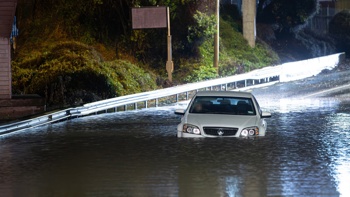Students believe the crackdown on expats not paying their student loans, is doing more harm than good.
LISTEN ABOVE: Dr Claire Matthews of Massey University speaks to Rachel Smalley on Bayleys Early Edition
Inland Revenue has been able to track down more than 10,000 student loan borrowers living across the Tasman and defaulters are being identified.
LISTEN: Tertiary Education Minister Steven Joyce speaks with Chris Lynch
Tertiary Education Minister Steven Joyce says IRD sent an initial list of 104,000 names to the Australian Tax Office under an information exchange agreement.
The ATO found contact details for 10,400 of them.
IRD will identify those who are in default and start contacting them about resuming their repayments.
The matching exercise is ongoing.
Mr Joyce says the amount in default was just over $1 billion at the end of June with more than 90 per cent owed by borrowers living overseas, although they make up only 15 per cent of the total borrower population.
He says a "significant majority" of overseas-based borrowers are believed to be living in Australia.
"This new information exchange agreement will be a huge boost in enabling Inland Revenue to get in touch with those borrowers who have been hard to track down, and those who have been deliberately avoiding their obligations for a number of years," Mr Joyce said.
"My advice to these borrowers is to do the right thing and get in touch with Inland Revenue ... if they don't, someone will be knocking on their door in the next few months."
However, president of the Union of Students' Associations Linsey Higgins said defaulters are the minority, and the government's not going about this the right way.
"We believe that a lot of these measures are just punishing the good people at the expense of trying to get a few bad eggs."
Higgins said most of these people don't actually know what their obligations are - particularly those overseas with decades-old loans.
"Now they're in a position where they're concerned and they don't want to contact IRD because even getting themselves on the radar might get them deported back to New Zealand or something equally awful."
Take your Radio, Podcasts and Music with you









